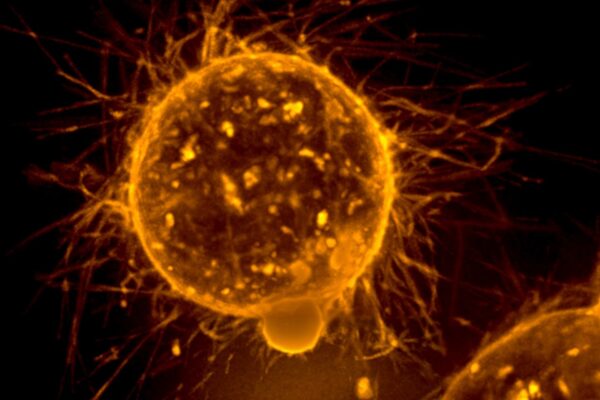
Quest Diagnostics is boosting its capabilities in cancer, paying $300 million to acquire a Johns Hopkins University spinout whose technology identifies cancer cells in order to guide treatment decisions.
The Secaucus, New Jersey-based diagnostics giant on Thursday announced the cash acquisition of Haystack Oncology. The Baltimore-based startup is part of a growing area in cancer testing called liquid biopsies, tests that detect cancer by finding circulating tumor DNA in a patient’s blood sample. Grail and Guardant Health are among the companies that market tests that detect early signs of cancer, enabling clinicians to intervene sooner.
Haystack’s focus is minimal residual disease—detecting cancer cells that remain following initial treatment with surgery or a drug. Test results help clinicians assess how well the initial treatment worked and whether additional treatment, called an adjuvant, is necessary to kill any lingering cancer cells. That’s important because additional treatment, often a chemotherapy, introduces a wide range of side effects.
Results of a prospective study published last June in the New England Journal of Medicine showed that an earlier version of Haystack’s technology was able to better identify colon cancer patients with residual disease. By identifying those who need adjuvant therapy, the Haystack technology also identifies those who do not, sparing them the harsh effects of chemotherapy that they do not need.
Quest said it expects to adapt the Haystack test, making it the basis of new clinical lab services that could become available early next year. The initial focus will be minimal residual disease tests for colorectal, breast, and lung cancers.
In addition to the upfront payment, the acquisition agreement calls for Quest to pay up to $150 million for milestones that were not disclosed. The deal is expected to close in later in the current quarter.

A Deep-dive Into Specialty Pharma
A specialty drug is a class of prescription medications used to treat complex, chronic or rare medical conditions. Although this classification was originally intended to define the treatment of rare, also termed “orphan” diseases, affecting fewer than 200,000 people in the US, more recently, specialty drugs have emerged as the cornerstone of treatment for chronic and complex diseases such as cancer, autoimmune conditions, diabetes, hepatitis C, and HIV/AIDS.
“Working with Haystack, we have an opportunity to broaden access to [minimal residual disease] insights and potentially improve favorable long-term outcomes from cancer,” Quest Chairman, CEO, and President Jim Davis said in a prepared statement.
Haystack was founded in 2021 by Johns Hopkins scientists Bert Vogelstein, Ken Kinzler, and Nick Papadopoulos. Kinzler and Papadopoulos were co-founders of cancer diagnostics firm Exact Sciences. All three scientists went on to found liquid biopsy startup Thrive Earlier Detection, which Exact Sciences acquired in 2021. Last November, Haystack announced a $56 million Series A round of financing led by Catalio Capital Management.
Public domain image by Stuart S. Martin via the National Cancer Institute













